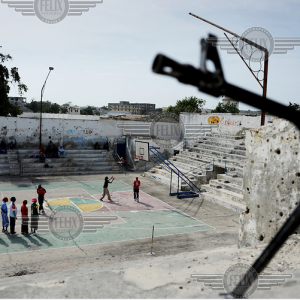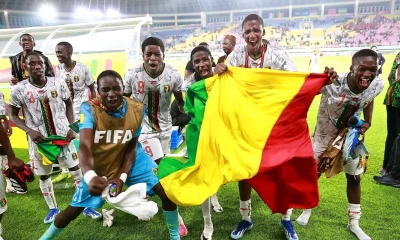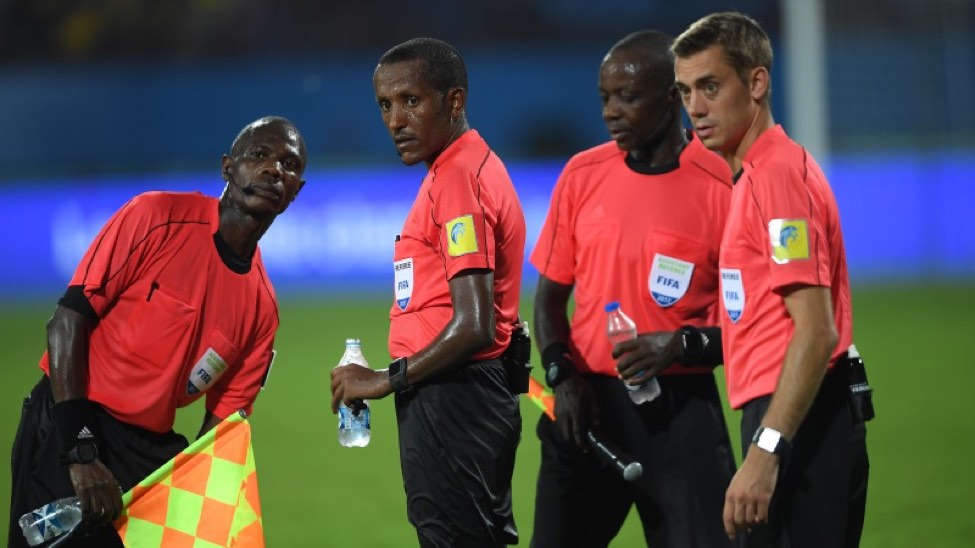
The “forbidden fruit”. What is it like for women particularly bound by tradition, culture and faith, to engage in sports? Any sport is a right and a means for many to find purpose while defining a true impact in many aspects.
For Somali women, it is a whole different reality. While their counterparts in other African Islam countries are being afforded the liberty to nurture their true stardom, it isn’t so much for the Horn of Africa nation.
Sport is a death trap for them. Yes, unfortunately it is. But while it is unusual for these women, it is a spiraling chance to break free from the clutches of war and psychological prison where women are restricted every day of their lives. This is not the first time Somalian women have been banned but it is also a demanding time for them to re-establish relevance through sports.
A group of influential Somali clerics decreed a ban, again, on women playing basketball prior to the national interregional all-girls basketball tournament held in Garoowe, in the Puntland state.
The fatwa issued by the Somali Religious Council (SRC) warned against the dangers of women in sports describing it as “unIslamic” and “threat to their faith”.
According to CCTV Africa, SRC chairman, Sheikh Bashir Ahmed Salat, warned that Islam does not accept women’s games citing cultural and religious shame for men to watch women wearing sporting attire. “This can cause destruction and suffering,” he said.
The Sheikh told VOA Somalia, “We warn that the women basketball violates the Islamic Law, culture and its values, and it is a place where women can be easily corrupted.
“We have a right to defend our Islamic values which does not allow women to wear soft sports attire and show their body and beauty as men watch in public.
[perfectpullquote align=”full” cite=”” link=”” color=”” class=”” size=””]”It is not an attack against anyone. Women should know that they are susceptible to the enemy of Islam, and that youth in particular are the target for those who want to change your Islamic values.”[/perfectpullquote]
But is sports not a tool for community development and empowerment? The first female tournament of its kind drew teams from all five regional administrative states, including Mogadishu and has since been seen as a means to a hopeful and stable Somalia.
“I play wearing my Hijab (Islamic veil) on, and this is my favorite sports and I have a right to play as long as I am not against the major values and pillars of my religion,” Sahra Mohamud, one of the basketball players told VOA Somalia.
“We see sports as a peacekeeping tool to bring the Somali people together,” she added.
This view is not only shared by Mohamud. For the women clad in full body and head outfits, their dedication to basketball is nothing short of admiration and new light for a country still on a shaky recovery from its collapse in 1991.
The ban was not met well by Somalis on ground and social media who tweeted in criticism to the warning issued by the Council of Islamic clerics. Most share Mahmoud’s vision of a more integrated Somalia while others accused the Muslim clerics of failing to use their influence to put an end to Al-Shabaab’s military insurgence.
Ali Nuh, a politician told Radio Dalsan, “It is such fatwas that lead the youth to become extremists. We are emerging from years of being fed by Al-Shabaab propaganda and now the new challenges are these controversial fatwas.”
Omar Abdullahi Osman, governor of the host region held the tournament in high regard, explaining that, “The games were a chance for Somalian women to exhibit their talents as it is done in many Islamic countries.”
It was also a special moment for the all-female event presided over by IIhan Omar, the first Somali-American Muslim woman ever elected to the Minnesota House of Representatives, in the US.
“I am pleased to witness female athletes from many Somali regions, which shows that the country is heading in the right direction,” the Minnesota legislator said.
In 2006, women felt the iron hand imposed by the Islamic Courts Union (ICU) – who for some time controlled large areas of Somalia’s south and central regions, including Mogadishu – banning women from sports, especially basketball that was labeled a “satanic act” against the principles of Islam.
But conviction and the pursuit of new hope drove Somali women’s basketball team to join the international scene in 2011 and has recently grown into a sports business in Mogadishu, with different local tournaments being organized since.
Despite the threats from Al-Shabaab to the captain to – either stop playing basketball or be killed – the resilient sky blue-clad women’s team, made history at the 2011 Arab Games, recording two wins (against hosts Qatar and Kuwait) and three losses.
Suweys Ali Jama would go on to respond by saying, “I will only die when my life runs out. No one can kill me but Allah. I will never stop my profession while I am still alive.
[perfectpullquote align=”full” cite=”” link=”” color=”” class=”” size=””]”Now, I am a player, but even if I retire I hope to be a coach – I will stop basketball only when I perish.”[/perfectpullquote]
For these women, playing basketball comes with improvisation and maneuvers to avoid the attention of those who will not let them share in the benefits of a sport associated with the enemy, America.
In addition to death threats, other proposed punishments included sawing off their right hands and left feet, a fearful and also dreadful act.
Prior to the 2011 Arab Games, another team member and assistant captain, Aisha Mohamed, quoted her oppressors as saying: “You are twice guilty. First, you are a woman and you are playing sports, which the Islamic rule has banned.
[perfectpullquote align=”full” cite=”” link=”” color=”” class=”” size=””]”Second, you are representing the military club who are puppets for the infidels. So we are targeting you wherever you are.”[/perfectpullquote]
And yet, these are merely words that will not deter the high spirits of these young women.
Mohamed comes from a family of sports, whose mother is a former member of the women’s national team and has played since childhood. Aware of the dangers, she responded with resolve, “I am a human being and I fear, but I know that only Allah can kill me.”
The training ground is not your typical environment. The bullet-ridden walls are surrounded by ruins of a demolished city (Mogadishu), protected by armored vehicles patrolling the gym’s perimeter and a machine gun set at the entrance.
The men charged with the protections of the all-female basketball team, are positioned on nearby rooftops, geared up in ammunition belts slung across their shoulders and readied with AK-47s.
Som Somali women’s basketball team trains ahead of the 2011 Arab Games (FELIX FEATURES PHOTOGRAPHY)
Somali women’s basketball team trains ahead of the 2011 Arab Games (FELIX FEATURES PHOTOGRAPHY)
In 2011, the Secretary General of the Somali Basketball Federation declared a commitment to protecting the lives of sports women. “We try to protect them outside and inside” adding that the women’s safety is “taken very seriously.”
A ban against women in sports is incomprehensible to many outside Somalia, but for these young girls and women, bravery and the unwillingness to be derailed is the only weapon they have in an uncertain fight for the right to play.
Featured Photo: For some women around the world, it is a matter of honor and opportunity. For Somali women, it is life and death (PINTEREST.COM)












